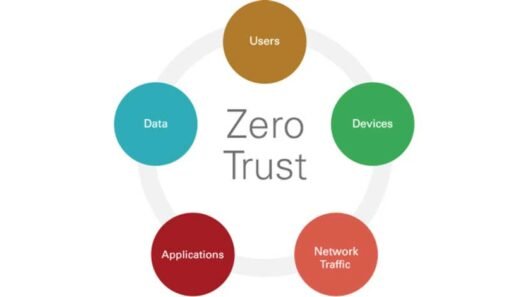When it comes to web development, choosing the right framework can make a significant difference in both the development process and the outcome of the project. Among the myriad of PHP frameworks available, Laravel stands out for its elegant syntax, advanced features, and robust performance. Its unique set of tools and streamlined workflow help developers create web applications more efficiently than many of its competitors. Below, we embark on a thorough comparative analysis of Laravel and other PHP frameworks, discussing specific features that give Laravel its edge in the world of web development.
Laravel vs. Other PHP Frameworks: A Comparative Analysis
Laravel offers a harmonious blend of performance, features, and scalability, distinguishing it from other PHP frameworks. Its modern toolkit, which includes an array of functionalities designed to streamline tasks such as routing, authentication, and caching, makes it a comprehensive solution. The framework’s focus on adhering to the model-view-controller (MVC) architecture promotes clean and manageable code, highlighting its devotion to best practices in software development.
In contrast, frameworks like CodeIgniter and Symfony, although powerful in their own respects, approach problem-solving differently. CodeIgniter is known for its simplicity and lean learning curve, making it ideal for beginners, but it may lack the extensive built-in functionalities that Laravel offers. Symfony, on the other hand, is recognized for its high flexibility and component-based architecture, but it can introduce complexity that may be an overkill for smaller projects or teams.
Zend Framework, another established PHP framework, boasts a strong collection of object-oriented components. However, Laravel excels with its elegant and expressive syntax that can reduce development time and effort. Furthermore, Laravel augments the development process with tools like Homestead, an all-in-one Vagrant box that simplifies the development environment setup.
It is the attention to detail and the comprehensive ecosystem built around Laravel that truly sets it apart. Scalability remains a concern in web development, and Laravel, with its efficient database migrations and queue library, has proven to be a formidable choice for applications expecting to scale. Such features enable Laravel developers to maintain app performance and handle growing traffic with ease.
The Eloquent ORM Edge: Simplifying Database Interactions
Laravel comes with a built-in ORM called Eloquent, renowned for its simplicity and expressiveness. It allows developers to interact with databases in a more intuitive way through object-oriented models. This eliminates the need for writing SQL queries in most cases and results in cleaner, more readable code. With Eloquent, managing relationships between database tables is straightforward and fluid.
Interacting with databases can be cumbersome with traditional raw SQL queries, but Eloquent leverages the power of Active Record implementation. This makes it easier to create and maintain relationships among data entities, perform data operations, and iterate over results. The elegant use of PHP’s dynamic methods and properties in Eloquent translates to a highly maintainable codebase.
Other frameworks may offer ORMs, like Doctrine for Symfony or ActiveRecord in Yii, but Eloquent stands out with its deep integration into Laravel’s ecosystem, enabling automatic pagination, model factories for seeding data, and its soft delete capabilities. This consistency across the framework’s features maintains the developer’s focus on the logic rather than the boilerplate code.
Artisan Console: Leveraging Command Line for Efficient Development

The Laravel framework’s Artisan console is a powerful command-line interface that facilitates numerous tasks during the development cycle. From generating boilerplate code for new controllers, models, and migrations to managing database seeding and migrations, Artisan saves developers time and enforces consistency within the project structure. The convenience of scaffolding provided by Artisan is unparalleled in the PHP ecosystem.
Artisan also allows for the creation of custom commands, making it possible to tailor the CLI to your project’s specific needs. This means repetitive tasks can be automated through Artisan, streamlining development workflows. The rich set of commands available out-of-the-box coupled with the option for customization emphasizes Laravel’s commitment to productivity.
Beyond the community, Laravel’s ecosystem is rich with tools and packages that help expedite development. Laravel’s official packages, like Horizon for queue monitoring and Socialite for OAuth authentication, are powerful and well-maintained. Additionally, sites like Laracasts offer educational resources that cover both fundamental concepts and advanced techniques for Laravel web development.
Laravel’s inherent flexibility, ease of use, and wealth of features offer a comprehensive platform for web development. The framework’s robust ORM, advanced templating engine, and intuitive command-line interface work in tandem with a supportive community and rich ecosystem to provide a truly superior experience. Altogether, Laravel stands out as the preferred choice for developers seeking to craft high-quality, maintainable web applications efficiently.








